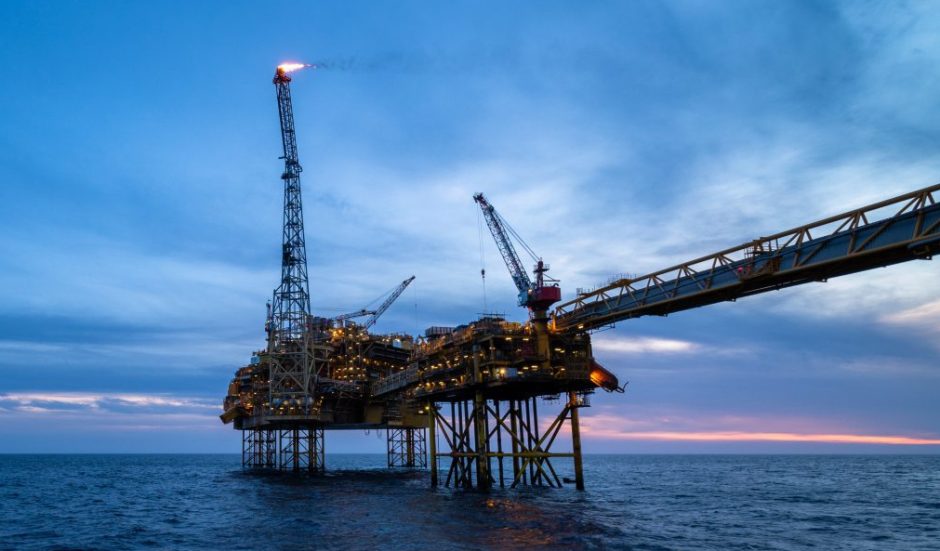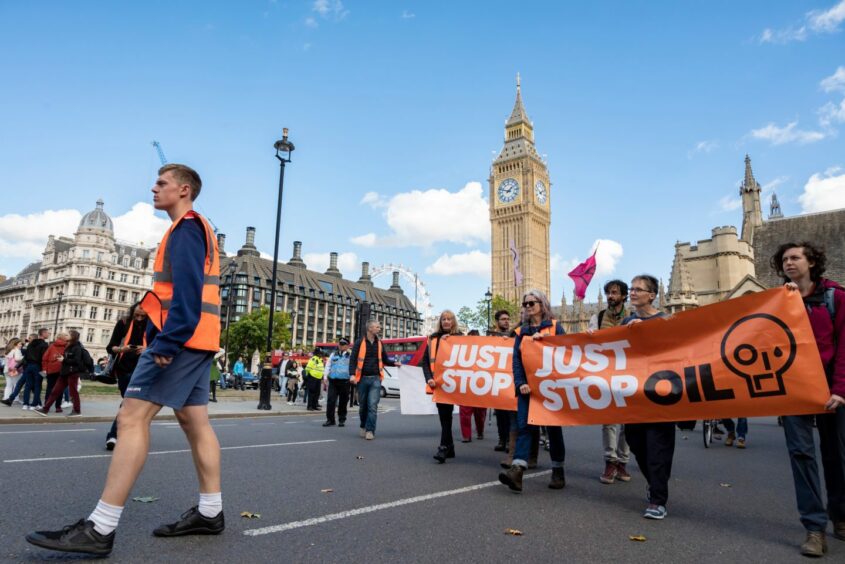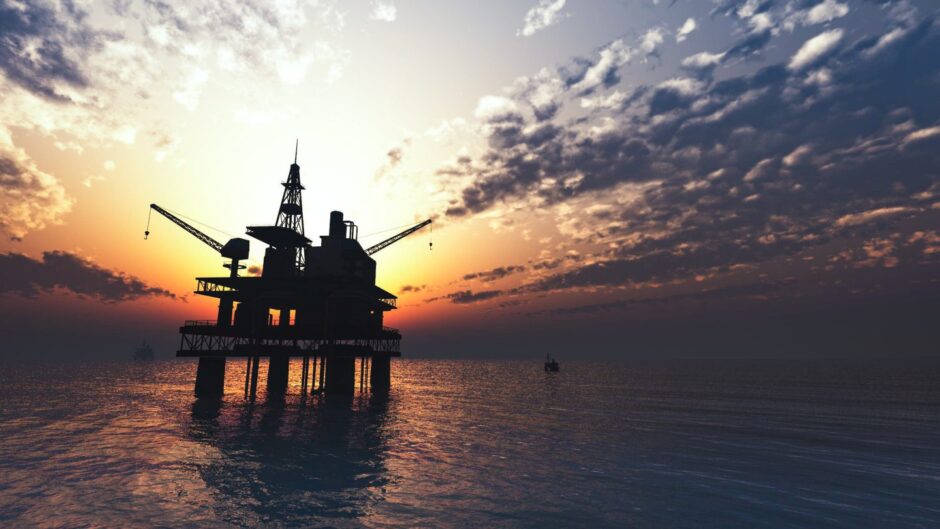
Environmental campaign groups have criticised the latest awarding of new oil and gas licences by the North Sea Transition Authority (NSTA).
Operators submitted more than 115 applications as part of the regulator’s 33rd Oil and Gas Licensing Round, with the NSTA awarding 27 licences in the first tranche announced today.
The NSTA hailed the licences as a ”welcome boost” for the UK North Sea industry and said the more than 115 applications received was the highest since the 29th Licensing Round in 2016/2017.
Oil and gas sector representatives welcomed the offer of dozens of new exploration licences.
The chief executive of trade body Offshore Energies UK (OEUK), David Whitehouse, said the announcement was “a boost for UK energy security and for the 200,000 people in jobs supported by the offshore energy sector.”
‘Despicable decision’ to award new North Sea licences
But environmental campaign groups including Greenpeace, Uplift and Friends of the Earth were quick to condemn the announcement of new exploration licences.
Friends of the Earth Scotland’s climate and energy campaigner Caroline Rance described the decision to award the licences as “despicable”.
“Handing out new oil licences is a despicable decision from the UK Government because Ministers know that new fossil fuels will lead to even greater death and destruction from climate breakdown.” Ms Rance said.
“This is a wilful dereliction of duty from an Energy Minister who is committing the people she is supposed to represent to more frequent and more intense storms and floods like those that are lashing the UK right now.
“Every new oil field granted takes us further from the fair and fast transition to renewable energy that is needed by workers and the communities most affected.”
Greenpeace says UK ‘fuelling the climate crisis’
Greenpeace UK climate campaigner Philip Evans said the UK government is “fuelling the climate crisis” instead of helping to fix it.
“UK voters want warmer homes, cheaper energy bills and a government that’s not afraid to take on the climate crisis,” Mr Evans said.
“Instead they’re being ignored so (Prime Minister) Rishi Sunak can pander to corporate interests, with licences for fossil fuels that’ll make no difference to bills, do nothing for energy security, and produce yet more profits for dizzyingly wealthy companies like Shell.
“They profit while we get colder and poorer, and the UK turns into a nation that’s fuelling the climate crisis rather than helping to fix it.”
Uplift says no benefit to energy security
Uplift executive director Tessa Khan said the latest licensing round would not improve energy security in the UK.
“This government isn’t being straight with the British public,” Ms Khan said.

“New North Sea licences won’t make a scrap of difference to the lives of millions of people who can’t afford to heat their homes this winter, nor for our energy security more generally.”
Ms Khan said there is “next to no gas left in the North Sea” and the remaining oil provided no benefit to the UK.
“The hundreds of new licences issued in the last 13 years under the Conservatives have so far provided the UK with a grand total of just over a fortnight’s worth of gas,” she said.
“These new approvals will be no different. Most of what’s left in the North Sea is oil, and we export 80% of that which we then have to buy back like every other consumer.”
Ms Khan said the government needed “real solutions” to the problems facing the UK energy system, calling for policies to better insulate homes and support the renewables sector.
Environmental groups set to continue legal challenge
Earlier this year, Greenpeace and Uplift launched a legal challenge against the 33rd licensing round, arguing the UK government “failed to properly assess the climate impact” of the new round and failed to properly consider “reasonable alternatives”.
But in a judgement handed down by the High Court on Thursday, October 19, the court dismissed the challenge.
Following the awarding of new licences today, Mr Evans said Greenpeace would continue its legal fight.
“Greenpeace plans to fight these licences in the courtroom, and we’re mobilising voters to prioritise climate at the next election, because frankly we’re all sick of these backward facing policies,” he said.
Offshore industry defends environmental credentials
In a media briefing following the licensing announcement this morning, OEUK market intelligence manager Ross Dornan said the industry was subject “to probably what is the world’s most robust regulatory regime”.
“Every development goes through on its own (environmental) merits,” Mr Dornan said.
“We are heavily regulated, we’re robustly regulated, and that’s a good thing.”
OEUK chief executive David Whitehouse said: “We all recognise that our energy system must change, and our industry includes companies that are expanding into renewables while using their expertise to pioneer ever cleaner energy production.
“The reality of the energy transition is that we need both oil and gas and renewables in an integrated system to protect the UK’s energy needs over the coming years.
The OEUK also pointed to analysis from the NSTA showing the carbon footprint of domestic gas production is around one-quarter of the carbon footprint of imported liquified natural gas.
Recommended for you

 © Supplied by Shutterstock
© Supplied by Shutterstock